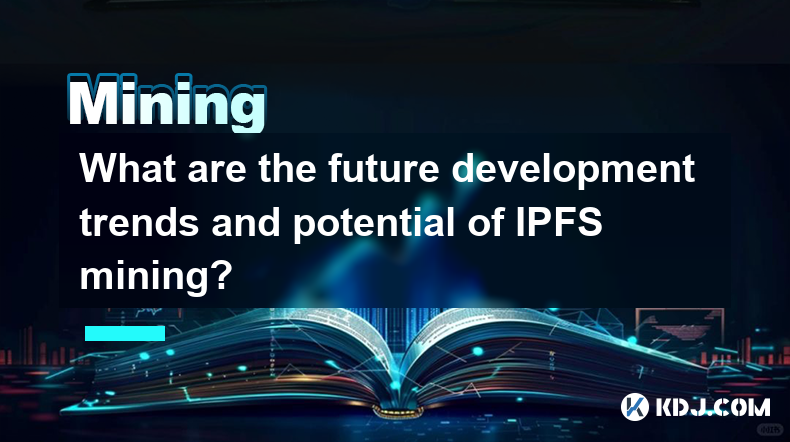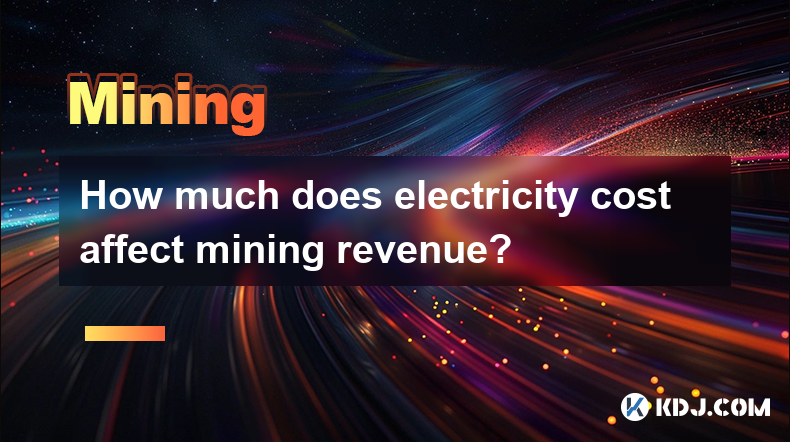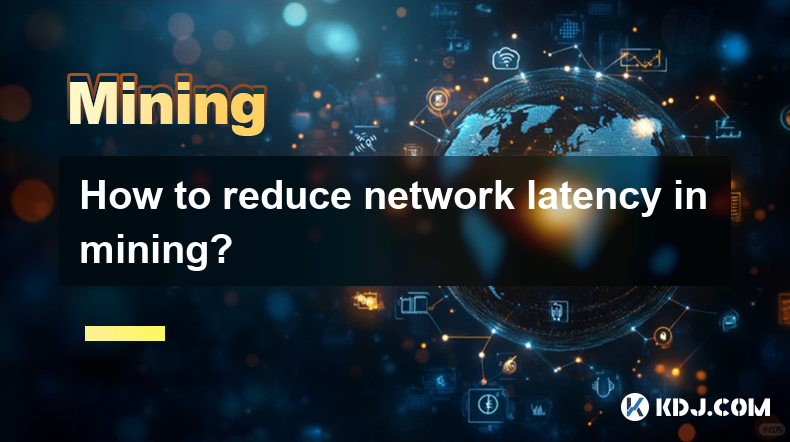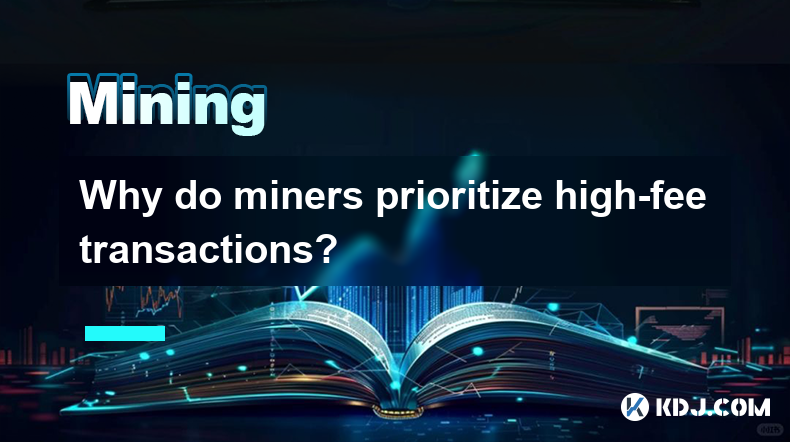-
 Bitcoin
Bitcoin $76,444.7530
-3.77% -
 Ethereum
Ethereum $1,473.8355
-5.46% -
 Tether USDt
Tether USDt $0.9991
-0.08% -
 XRP
XRP $1.7965
-5.51% -
 BNB
BNB $553.4919
-0.36% -
 USDC
USDC $0.9999
-0.02% -
 Solana
Solana $105.2981
-1.74% -
 TRON
TRON $0.2303
0.81% -
 Dogecoin
Dogecoin $0.1422
-4.62% -
 Cardano
Cardano $0.5587
-4.41% -
 UNUS SED LEO
UNUS SED LEO $8.9866
1.01% -
 Toncoin
Toncoin $2.9933
-4.74% -
 Chainlink
Chainlink $10.9113
-4.81% -
 Stellar
Stellar $0.2215
-4.76% -
 Avalanche
Avalanche $16.1163
-3.29% -
 Sui
Sui $1.9371
-3.89% -
 Shiba Inu
Shiba Inu $0.0...01065
-6.69% -
 Hedera
Hedera $0.1469
-3.29% -
 MANTRA
MANTRA $6.2058
-1.53% -
 Dai
Dai $1.0000
0.01% -
 Bitcoin Cash
Bitcoin Cash $269.3457
-2.08% -
 Polkadot
Polkadot $3.3773
-5.87% -
 Litecoin
Litecoin $69.2204
-2.50% -
 Ethena USDe
Ethena USDe $0.9986
-0.01% -
 Bitget Token
Bitget Token $4.0180
-3.25% -
 Pi
Pi $0.5649
-4.50% -
 Hyperliquid
Hyperliquid $11.1928
-2.80% -
 Monero
Monero $195.3885
-4.41% -
 OKB
OKB $50.9235
-0.59% -
 Uniswap
Uniswap $4.7688
-6.95%
What are the future development trends and potential of IPFS mining?
IPFS mining's future is shaped by blockchain integration, eco-friendly practices, and the rising demand for decentralized storage solutions.
Apr 04, 2025 at 04:49 am

The future of IPFS (InterPlanetary File System) mining is an intriguing topic within the cryptocurrency circle, as it intertwines the potential of decentralized storage with the lucrative world of cryptocurrency mining. IPFS mining refers to the process of contributing to the IPFS network by providing storage resources and, in return, earning cryptocurrency rewards. As we look into the future, several trends and potentials emerge that could shape the trajectory of IPFS mining.
Emerging Trends in IPFS Mining
One of the most notable trends in IPFS mining is the increasing integration with blockchain technology. As more blockchain projects adopt IPFS for decentralized storage, the demand for IPFS mining is expected to grow. This integration not only enhances the security and efficiency of data storage but also opens up new avenues for miners to earn rewards. Additionally, the rise of decentralized applications (dApps) that rely on IPFS for storing data is another significant trend. These dApps, ranging from social media platforms to gaming, are increasing the demand for robust and scalable storage solutions, thereby boosting the potential for IPFS mining.
Another trend to watch is the evolution of mining hardware specifically designed for IPFS. As the technology matures, we can expect to see more specialized hardware that optimizes the efficiency of IPFS mining. This could lead to lower energy consumption and higher rewards for miners. Moreover, the increasing focus on sustainability within the cryptocurrency community is pushing IPFS mining towards more eco-friendly practices. Miners are exploring ways to use renewable energy sources, which could not only reduce the environmental impact but also make IPFS mining more economically viable in the long run.
Potential Growth and Opportunities
The potential for IPFS mining lies in its ability to address the growing need for decentralized storage solutions. As data breaches and privacy concerns become more prevalent, the demand for secure, decentralized storage is expected to surge. IPFS, with its peer-to-peer architecture, offers a promising solution. Miners who contribute to the IPFS network can benefit from this growing demand by earning cryptocurrency rewards. Additionally, the scalability of IPFS mining presents another opportunity. Unlike traditional blockchain mining, which can be limited by network congestion, IPFS mining can scale more efficiently, allowing more participants to join the network and earn rewards.
Another area of potential growth is the integration of IPFS mining with other emerging technologies. For instance, the combination of IPFS with artificial intelligence (AI) and machine learning (ML) could lead to more intelligent and efficient storage solutions. Miners could leverage these technologies to optimize their operations and increase their rewards. Furthermore, the potential for IPFS mining to be integrated into larger ecosystems, such as decentralized finance (DeFi) platforms, could open up new revenue streams for miners. By participating in these ecosystems, miners could earn additional rewards beyond the traditional storage incentives.
Challenges and Considerations
Despite the promising trends and potential, IPFS mining also faces several challenges. One of the primary concerns is the regulatory environment. As governments around the world grapple with how to regulate cryptocurrencies and decentralized technologies, IPFS mining could be impacted. Miners need to stay informed about regulatory developments and adapt their strategies accordingly. Another challenge is the technical complexity of IPFS mining. Unlike traditional cryptocurrency mining, which can be relatively straightforward, IPFS mining requires a deeper understanding of decentralized storage and networking. This can be a barrier for new entrants looking to participate in the network.
Additionally, the competition within the IPFS mining space is increasing. As more miners join the network, the rewards per miner may decrease, making it harder for individual miners to achieve profitability. To overcome this, miners may need to adopt more sophisticated strategies, such as pooling resources or optimizing their hardware and software configurations. Furthermore, the security of the IPFS network is a crucial consideration. Miners must ensure that their operations are secure and that they are contributing to the overall resilience of the network.
Strategies for Success in IPFS Mining
To succeed in IPFS mining, miners need to adopt a strategic approach. Here are some key strategies that could help miners maximize their potential:
Stay Informed: Keeping up-to-date with the latest developments in IPFS and the broader cryptocurrency ecosystem is essential. Miners should regularly follow industry news, participate in community forums, and attend relevant events to stay ahead of the curve.
Optimize Hardware: Investing in specialized hardware designed for IPFS mining can significantly improve efficiency and profitability. Miners should research and choose hardware that offers the best performance for their specific needs.
Join Mining Pools: Participating in mining pools can help miners increase their chances of earning rewards. By pooling resources with other miners, individuals can benefit from a more stable and predictable income stream.
Focus on Security: Ensuring the security of their operations is crucial for IPFS miners. This includes implementing robust security measures, regularly updating software, and monitoring for potential threats.
Explore Integration Opportunities: Miners should explore opportunities to integrate IPFS mining with other technologies and ecosystems. This could include participating in DeFi platforms, collaborating with AI and ML projects, or contributing to dApps that rely on decentralized storage.
Adopt Sustainable Practices: Embracing sustainability can not only reduce the environmental impact of IPFS mining but also improve its long-term viability. Miners should consider using renewable energy sources and adopting energy-efficient practices.
The Role of Community and Collaboration
The future of IPFS mining is also closely tied to the strength of its community and the level of collaboration among its participants. A vibrant and engaged community can drive innovation, support new entrants, and help overcome challenges. Miners should actively participate in community discussions, share their experiences, and collaborate on projects that advance the IPFS network. Additionally, partnerships between IPFS miners and other stakeholders, such as blockchain developers and dApp creators, can create synergies that benefit the entire ecosystem. By working together, the IPFS mining community can unlock new opportunities and drive the growth of decentralized storage solutions.
Technological Advancements and Their Impact
Technological advancements play a crucial role in shaping the future of IPFS mining. As the underlying technology continues to evolve, miners can expect to see improvements in efficiency, security, and scalability. For instance, advancements in networking technologies could enhance the performance of the IPFS network, allowing miners to store and retrieve data more quickly. Similarly, developments in encryption and security protocols could make IPFS mining more secure, reducing the risk of data breaches and enhancing the overall resilience of the network.
Moreover, the integration of new technologies, such as edge computing and the Internet of Things (IoT), could further expand the potential of IPFS mining. Edge computing, for example, could enable miners to process data closer to the source, reducing latency and improving efficiency. IoT devices, on the other hand, could generate vast amounts of data that need to be stored securely and efficiently, creating new opportunities for IPFS miners. By staying at the forefront of these technological advancements, miners can position themselves to take advantage of emerging trends and opportunities.
Economic Factors and Market Dynamics
The economic factors and market dynamics surrounding IPFS mining are also critical to its future development. The value of the cryptocurrency rewards that miners earn is influenced by market conditions, such as the overall demand for decentralized storage solutions and the price volatility of cryptocurrencies. Miners need to carefully monitor these factors and adjust their strategies accordingly. For instance, during periods of high demand for decentralized storage, miners may be able to earn higher rewards, while during periods of low demand, they may need to focus on optimizing their operations to maintain profitability.
Additionally, the competition within the IPFS mining space can impact the economic viability of mining. As more miners join the network, the rewards per miner may decrease, making it harder for individual miners to achieve profitability. To navigate these market dynamics, miners may need to adopt more sophisticated strategies, such as pooling resources or optimizing their hardware and software configurations. Furthermore, the potential for IPFS mining to be integrated into larger ecosystems, such as DeFi platforms, could open up new revenue streams for miners, helping to mitigate the impact of market fluctuations.
The Role of Education and Awareness
Education and awareness are essential for the future development of IPFS mining. As the technology becomes more mainstream, it is crucial for miners to educate themselves and others about the benefits and potential of IPFS mining. This includes understanding the technical aspects of IPFS, the economic factors that influence mining, and the broader implications of decentralized storage for data privacy and security. By raising awareness and providing educational resources, the IPFS mining community can attract more participants and drive the growth of the network.
Additionally, educational initiatives can help address some of the challenges facing IPFS mining, such as the technical complexity and regulatory uncertainty. By providing clear and accessible information, miners can empower themselves and others to navigate these challenges more effectively. Furthermore, education can foster a culture of collaboration and innovation within the IPFS mining community, encouraging miners to share their knowledge and work together to advance the technology.
The Impact of Global Events and Trends
Global events and trends can also have a significant impact on the future of IPFS mining. For instance, the increasing focus on data privacy and security, driven by high-profile data breaches and regulatory changes, is likely to boost the demand for decentralized storage solutions. This could create new opportunities for IPFS miners to earn rewards by providing secure and reliable storage services. Similarly, the growing interest in blockchain technology and cryptocurrencies, fueled by institutional adoption and mainstream media coverage, could drive more investment and innovation in the IPFS mining space.
Moreover, global economic trends, such as the shift towards digitalization and remote work, could increase the demand for decentralized storage solutions. As more businesses and individuals rely on digital data, the need for secure and scalable storage options is likely to grow, creating new opportunities for IPFS miners. By staying attuned to these global events and trends, miners can position themselves to take advantage of emerging opportunities and navigate potential challenges.
The Future of IPFS Mining: A Holistic Perspective
The future of IPFS mining is shaped by a complex interplay of technological, economic, and social factors. As the technology continues to evolve, miners can expect to see improvements in efficiency, security, and scalability. The integration of IPFS mining with other emerging technologies, such as AI, ML, and IoT, could further expand its potential. Additionally, the economic factors and market dynamics surrounding IPFS mining will play a crucial role in determining its viability and profitability.
Education and awareness are essential for the future development of IPFS mining, as they can help attract more participants and drive the growth of the network. Global events and trends, such as the increasing focus on data privacy and security, could also create new opportunities for IPFS miners. By adopting a holistic perspective and staying attuned to these various factors, miners can position themselves to succeed in the evolving landscape of IPFS mining.
Common Questions and Answers
Q: What is IPFS mining?
A: IPFS mining is the process of contributing to the IPFS network by providing storage resources and earning cryptocurrency rewards in return. Miners help store and distribute data across the decentralized network, ensuring its availability and security.
Q: How does IPFS mining differ from traditional cryptocurrency mining?
A: IPFS mining focuses on providing decentralized storage solutions, whereas traditional cryptocurrency mining involves solving complex mathematical problems to validate transactions and add them to the blockchain. IPFS mining rewards miners for storing and sharing data, while traditional mining rewards miners for securing the network and processing transactions.
Q: What are the potential benefits of IPFS mining?
A: The potential benefits of IPFS mining include earning cryptocurrency rewards, contributing to the growth of decentralized storage solutions, and supporting data privacy and security. Miners can also benefit from the scalability and efficiency of the IPFS network.
Q: What are the challenges facing IPFS mining?
A: The challenges facing IPFS mining include regulatory uncertainty, technical complexity, increasing competition, and the need for robust security measures. Miners must stay informed and adapt their strategies to overcome these challenges.
Q: How can miners succeed in IPFS mining?
A: Miners can succeed in IPFS mining by staying informed, optimizing their hardware, joining mining pools, focusing on security, exploring integration opportunities, and adopting sustainable practices. Collaboration and community engagement are also crucial for success.
Q: What role does the community play in the future of IPFS mining?
A: The community plays a vital role in the future of IPFS mining by driving innovation, supporting new entrants, and helping to overcome challenges. A strong and engaged community can foster collaboration and create synergies that benefit the entire ecosystem.
Q: How do technological advancements impact IPFS mining?
A: Technological advancements can improve the efficiency, security, and scalability of IPFS mining. Developments in networking, encryption, and other technologies can enhance the performance of the IPFS network and create new opportunities for miners.
Q: What economic factors influence IPFS mining?
A: Economic factors that influence IPFS mining include the demand for decentralized storage solutions, the price volatility of cryptocurrencies, and the competition within the mining space. Miners need to monitor these factors and adjust their strategies accordingly.
Q: How can education and awareness contribute to the growth of IPFS mining?
A: Education and awareness can attract more participants to IPFS mining, drive innovation, and help address challenges such as technical complexity and regulatory uncertainty. By providing clear and accessible information, the community can empower miners to succeed.
Q: What global events and trends could impact the future of IPFS mining?
A: Global events and trends such as the increasing focus on data privacy and security, the growing interest in blockchain technology and cryptocurrencies, and the shift towards digitalization and remote work could impact the future of IPFS mining. These trends could create new opportunities for miners to earn rewards and contribute to the growth of decentralized storage solutions.
Disclaimer:info@kdj.com
The information provided is not trading advice. kdj.com does not assume any responsibility for any investments made based on the information provided in this article. Cryptocurrencies are highly volatile and it is highly recommended that you invest with caution after thorough research!
If you believe that the content used on this website infringes your copyright, please contact us immediately (info@kdj.com) and we will delete it promptly.
- "Cardano (ADA) Price Could Dip Below $0.60, Following Previous Market Cycle"
- 2025-04-09 05:10:12
- BONK, the well-known meme coin, has risen over 35% in the last week, attracting meme coin investors in the market. So, what caused this rally?
- 2025-04-09 05:10:12
- Bitcoin (BTC) Investors May Not Exactly Feel It, but BTC Has Been a Relatively Good Bet
- 2025-04-09 05:05:12
- Donald's Bitcoin (DONBTC) Could Turn Early Investors into Multi-Millionaires, Like Shiba Inu (SHIB) and Dogecoin (DOGE) Did
- 2025-04-09 05:05:12
- 6 Upcoming Kraken Listings That Could Be the Next Big Thing in Crypto
- 2025-04-09 05:00:13
- COTI Unveils New Privacy-Focused Blockchain to Reshape Web3 Transactions
- 2025-04-09 05:00:13
Related knowledge

How to prevent mining machines from being hacked?
Apr 08,2025 at 09:00pm
In the world of cryptocurrency, mining machines play a crucial role in securing networks and validating transactions. However, these machines are also prime targets for hackers looking to exploit vulnerabilities for financial gain. Preventing mining machines from being hacked requires a multi-faceted approach that includes robust security measures, regu...

How much does electricity cost affect mining revenue?
Apr 08,2025 at 05:29pm
The cost of electricity plays a crucial role in determining the profitability of cryptocurrency mining. Mining revenue is directly impacted by the expenses incurred in running mining equipment, with electricity costs often being the most significant operational expense. Understanding how electricity costs affect mining revenue is essential for miners lo...

How to reduce network latency in mining?
Apr 09,2025 at 02:28am
Understanding Network Latency in MiningNetwork latency is a critical factor in the world of cryptocurrency mining. It refers to the time it takes for data to travel from its source to its destination across a network. In mining, lower latency can mean the difference between successfully adding a block to the blockchain and missing out on the reward. Red...

What is hashrate fluctuation?
Apr 08,2025 at 08:08pm
Hashrate fluctuation refers to the changes in the total computational power used by miners to process transactions and secure the blockchain network. This metric is crucial in the cryptocurrency world, particularly for networks like Bitcoin, Ethereum, and others that rely on proof-of-work (PoW) consensus mechanisms. Understanding hashrate fluctuation is...

Why does mining require a full node?
Apr 08,2025 at 06:49pm
Mining in the cryptocurrency world is a complex process that involves verifying transactions and adding them to the blockchain. One of the key components required for mining is a full node. But why is a full node necessary for mining? Let's delve into the reasons and explore the intricacies of this requirement. What is a Full Node?A full node is a progr...

Why do miners prioritize high-fee transactions?
Apr 08,2025 at 05:01pm
Miners in the cryptocurrency ecosystem, particularly in networks like Bitcoin, play a crucial role in validating and adding transactions to the blockchain. One of the key factors that influence their decision-making process is the transaction fee associated with each transaction. Miners prioritize high-fee transactions primarily because these fees direc...

How to prevent mining machines from being hacked?
Apr 08,2025 at 09:00pm
In the world of cryptocurrency, mining machines play a crucial role in securing networks and validating transactions. However, these machines are also prime targets for hackers looking to exploit vulnerabilities for financial gain. Preventing mining machines from being hacked requires a multi-faceted approach that includes robust security measures, regu...

How much does electricity cost affect mining revenue?
Apr 08,2025 at 05:29pm
The cost of electricity plays a crucial role in determining the profitability of cryptocurrency mining. Mining revenue is directly impacted by the expenses incurred in running mining equipment, with electricity costs often being the most significant operational expense. Understanding how electricity costs affect mining revenue is essential for miners lo...

How to reduce network latency in mining?
Apr 09,2025 at 02:28am
Understanding Network Latency in MiningNetwork latency is a critical factor in the world of cryptocurrency mining. It refers to the time it takes for data to travel from its source to its destination across a network. In mining, lower latency can mean the difference between successfully adding a block to the blockchain and missing out on the reward. Red...

What is hashrate fluctuation?
Apr 08,2025 at 08:08pm
Hashrate fluctuation refers to the changes in the total computational power used by miners to process transactions and secure the blockchain network. This metric is crucial in the cryptocurrency world, particularly for networks like Bitcoin, Ethereum, and others that rely on proof-of-work (PoW) consensus mechanisms. Understanding hashrate fluctuation is...

Why does mining require a full node?
Apr 08,2025 at 06:49pm
Mining in the cryptocurrency world is a complex process that involves verifying transactions and adding them to the blockchain. One of the key components required for mining is a full node. But why is a full node necessary for mining? Let's delve into the reasons and explore the intricacies of this requirement. What is a Full Node?A full node is a progr...

Why do miners prioritize high-fee transactions?
Apr 08,2025 at 05:01pm
Miners in the cryptocurrency ecosystem, particularly in networks like Bitcoin, play a crucial role in validating and adding transactions to the blockchain. One of the key factors that influence their decision-making process is the transaction fee associated with each transaction. Miners prioritize high-fee transactions primarily because these fees direc...
See all articles






















































































